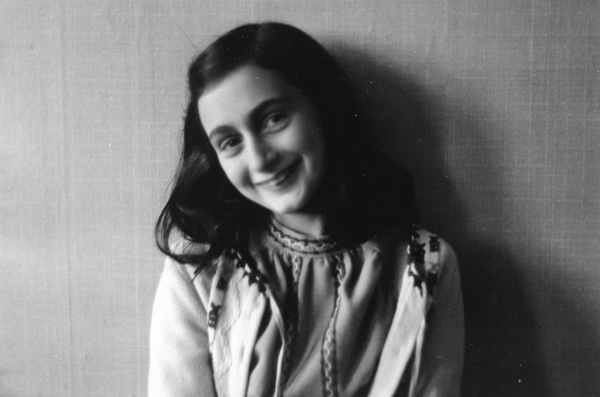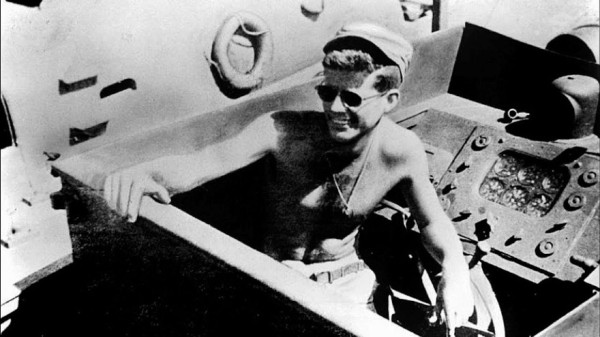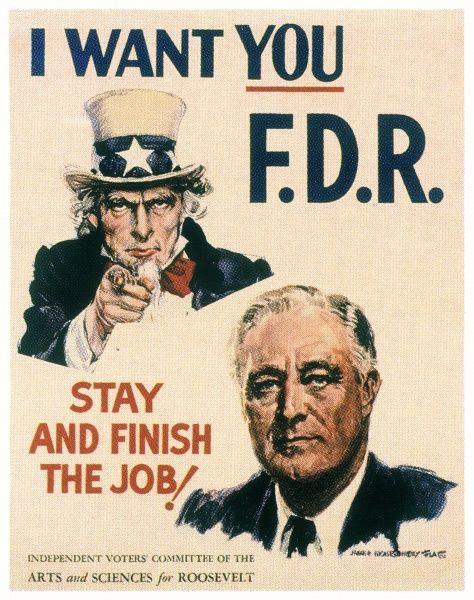ON THIS DAY IN HISTORY
HISTORY, NEWS & POLITICS
HISTORY & POLITICAL HEADLINES
OTD in History… August 4, 1944, Anne Frank and her family are captured by the Nazis
By Bonnie K. Goodman, BA, MLIS

On this day in history August 4, 1944, the Nazi Gestapo captured Anne Frankand her family, and fellow Jews, the van Pels family and Fritz Pfeiffer all of whom were hiding at Otto Frank’s office building 263 Prinsengracht in Amsterdam in a Secret Annex above the offices. After 10 a.m. in the morning on August 4, SS-Oberscharführer Karl Silberbauer of “the Sicherheitsdienst” and some Dutch police collaborators two of which are known, Willem Grootendorst and Gezinus Gringhuis stormed into the annex directly through the bookcase that hides the entryway, they stayed two hours. It has longed been believed the Franks had been tipped off by a source informed the Nazis police there were Jews hiding there.
The Gestapo forced the Franks and vans Pels to hand over all their valuables, and the Gestapo turned over everything within the annex, including throwing out Otto Frank’s briefcase containing Anne’s diary from the time she was turned thirteen through their hiding. Additionally, they arrested two of the Christians, Victor Kugler, and Johannes Kleiman, who had been taking care of the Franks, and sent them to Amersfoort penal camp. The other two, Otto’s secretary Miep Gies and typist Bep Voskuijl, who helped the Franks were questioned but not arrested. On August 5, Gies went back to the annex, where she found Anne’s diary, the notebooks and pages she added to it and the Franks family albums, and hide them.
There started Anne’s journey through the Nazi concentration camps, that, she, her sister Margot and her mother Edith would never survive. Their mother died at Auschwitz while Anne and Margot died in Bergen-Belsen barely two months before the camp was liberated. Only her father survived. Miep Gies returned Anne’s diaries to him after the war ended, he edited Anne’s diary and had it published, he chose passages from Anne’s original and edited versions of her diaries. After his death, the Netherlands Institute for War Documentation (Rijks Instituut voor Oorlogs documentatie (RIOD) published the full version of her diaries, finally giving a complete depiction of Anne and the events of those two years in hiding through her eyes. The diary was a real-time glimpse of Jewish survival and hiding in Nazi-occupied Europe. As Soviet writer Ilya Ehrenburg said of Anne’s diary, “One voice speaks for six million — the voice not of a sage or a poet but of an ordinary little girl.” Although Anne left a trail of her life in the secret annex in her diary, questions remain as to who really betrayed the family and when she died.
Anne Frank was born Annelies Marie Frank on June 12, 1929, in Frankfurt, Germany, she had an older sister Margot Betti, four years older, the family was liberal Jews. With Adolf Hitler’s rise to power in 1933, the Franks moved Amsterdam, Netherlands, Otto first, then Edith and the children. There they established a routine, Otto worked at Opekta Works, a company that extracted pectin, and they lived in an apartment in Merwedeplein (Merwede Square) in Rivierenbuurt, Amsterdam. In 1938, Otto established a second company Pectacon, which sold “herbs, pickling salts, and mixed spices.” Both girls went to mixed schools, Margot to public schools and Anne to a Montessori school.
Life would change for the Franks again, unsettling them once more, in May 1940, when the Nazis invaded the Netherlands. They instituted “discriminatory laws” against the Jewish population, including “mandatory registration and segregation.” Anne and Margot would have to attend the Jewish school, the Jewish Lyceum, secondary school. Otto had to transfer his business to Christians to avoid the Nazis confiscating them. He transferred Pectacon to Johannes Kleiman, and then it is was liquidated with assets transferred to Gies and Company operated by Jan Gies. Otto Frank tried in vain to acquire visas for the family to immigrate first to the United States in 1938 and then Cuba in 1941, but the US consulate closed in the interim with the Nazi invasion, and the whole application was lost, while the Cuban application was granted only for Otto in December 1941.
Anne’s father bought her a small red-and-white-plaid autograph book she wanted for her thirteenth birthday on June 12, 1942, which she immediately started to use as a diary recording her last month of freedom. On July 5, the SS called up Margot then sixteen to report for a work camp. Otto Frank was planning to hide the family and he intended they go into hiding on July 16, 1942. Margot’s call up from the Zentralstelle für jüdische Auswanderung (Central Office for Jewish Emigration) forced the family to make their move quicker than anticipated.
On Monday, July 6, 1942, the family left their apartment in disarray, with a note implying they fled to Switzerland. Anne left neighbor and friend Toosje Kupers some of her prized possessions including the family cat, Moortje. They walked to the “Opekta offices on the Prinsengracht,” where they hid in a three-floor space called the Achterhuis, “Secret Annex,” which was later concealed by a heavy large bookcase. Four Christian employees Victor Kugler, Johannes Kleiman, Bep Voskuijl, and Miep Gies knew about the Franks hiding and helped them with food and supplies. In addition, Gies husband Jan knew and Voskuijl’s father Johannes Hendrik Voskuijl, who also helped.
A week later on July 13, another family joined the Franks the van Pels, which included Hermann and Auguste and their sixteen-year-old son Peter. In November a friend of the van Pels, a dentist also from Germany Fritz Pfeffer, would be the join them in the annex. After hearing that the Netherlands wanted people to write diaries recounting the war for publication after the war, Anne began editing her diary and writing with focus. Anne took it seriously because she wanted to become a writer and journalist.
In her diary, Anne recounted in detail not only her feeling and thoughts but also the daily lives and tensions of living in a small space with little food available. She gave aliases to the van Pels and Pfeffer, calling them van Daan and Alfred Dussel respectively. Anne shared a room with Pfeffer and she had the most tensions and clashes with him, portraying him the most negatively in her diary than anyone else. She recounted her difficult relationship with her mother and sister, which she became closer to in the two years, and her blossoming romance with Peter.
Although the two years were difficult in tight quarters and never seeing the outside or anyone else, their nightmare began on August 4, 1944, when the Gestapo charged into the annex. To the Nazis, the Franks were considered criminals for not replying to the notice for Margot in 1942, and for hiding. From the annex, the Franks van Pels and Pfeffer were taken to Huis van Bewaring (House of Detention), a prison on the Weteringschans. They then spent a month in Westerbork transit camp and because they were branded as criminals, the Franks were sentenced to hard labor in the Punishment Barracks.
One of the biggest mysteries surrounding the Franks’ capture was who betrayed them? The Anne Frank House and even police investigations have never been able to pinpoint who betrayed the family. Gerard Kremer recently wrote a book, The Backyard of the Secret Annex giving the latest theory. Kremer’s father, Gerard Kremer, Sr. was the janitor at a building behind the Prinsengracht building. Kremer claims Ans van Dijk, who collaborated with the Nazis after her 1943 arrest helped capture 145 Jews, was the one responsible, she was executed in 1948. Kramer claims his father said he overheard van Dijk speaking with the Nazis about the building where the Franks were hiding. A spokesperson for Anne Frank House, the museum of the building and the secret annex, claims, “Ans van Dijk was included as a potential traitor in this study. We have not been able to find evidence for this theory, nor for other betrayal theories.”
Another book published in 2015, written by Flemish journalist Jeroen de Bruyn and Joop van Wijk, the typist Bep Voskuijl’s “youngest son” claims Bep’s younger sister Nelly was the one who notified the Nazis about the Franks. The book is entitled, Bep Voskuijl, het zwijgen voorbij: een biografie van de jongste helper van het Achterhuis (Bep Voskuijl, the Silence is Over: A Biography of the Youngest Helper of the Secret Annex). Van Wijk states that Nelly did not like that Bep and her father helped the Jewish families, while older sister Diny and her fiancé Bertus Hulsman remember Nelly calling the Gestapo on the day the Franks were captured. Nelly was a known Nazi collaborator, and the SS Officer Karl Silberbauer was noted as saying, the informant had “the voice of a young woman.”
The Anne Frank House did a study in 2016 reexamining the day of the Franks arrest, looking at previously unavailable sources. The study refuted both claims; instead, concluding an investigation into ration card fraud or activities in the company was the most probable reason, which led the Gestapo to the secret annex because the police unit dealt primarily with economic crimes. The report listed some of the possibilities. Otto Frank was certain someone had betrayed his family, and he reserved his greatest suspicion for Willem van Maaren, a new warehouse worker, who replaced the trusted Johan Voskuijl, who had built the bookcase hiding the room. There was, however, no evidence implicating van Maaren, except Frank and those that helped the families were suspicious of him, he was the only one ever questioned by the police and judiciary.
Historians have different opinions. Melissa Müller, the author of Anne Frank: The Biography, believes Lena Hartog, “the wife of another warehouseman” could have been behind the betrayal. Carol Ann Lee that author of The Hidden Life of Otto Frank thought Dutch National Socialist Tonny Ahlers could have betrayed them, while David Barnouw and Gerrold van der Stroom of The Netherlands Institute for War, Holocaust and Genocide Studies do not believe Van Maaren, Hartog, or Ahlers were involved.
According to the Anne Frank House, the closest possibility was related to illegal ration cards, they used Anne’s diary as evidence. From March 10, 1944, onward, Anne wrote about a “B” and “D”, most probably salesmen Martin Brouwer and Pieter Daatzelaar, saying, “B. and D. have been caught, so we have no coupons . . .” On March 22, she wrote, “B. & D. have been let out of prison.” As the Anne Frank House concludes, “The possibility of betrayal has of course not been entirely ruled out by this, nor has any relationship between the ration coupon fraud and the arrest been proven. Further research into the day-to-day activities at Otto Frank’s company and what else was happening in and around the premises could potentially provide more information. This article is a first step in thinking more broadly about the raid on the Secret Annex. Hopefully, it will also inspire other researchers to pursue new leads. Clearly, the last word about that fateful summer day in 1944 has not yet been said.”
Luck was not with the Franks, they left Westerbork on the last train taking Jews to the concentration camps. The Franks, van Pels, and Pfeffer were sent to Auschwitz, and the Franks were separated, only Edith, Margot and Anne stayed together. In October 1944, the Frank women were supposed to be transferred to “Liebau labor camp in Upper Silesia” but Anne had scabies, her mother and sister stayed behind and their fate was sealed. On October 28, the Nazis were forced to abandon Auschwitz, as the allies were closing in, they selected Margot and Anne to go to Bergen-Belsen concentration camp but their mother had to stay behind were she died. Bergen-Belson was a death trap of disease and by February the Frank sisters were battling typhus and died either at the end of February or March, another mystery left unsolved.
With the publication of her diary, Anne Frank became immortalized forever, the teenage Jewish victim of the Holocaust. Her father commented in his memoirs, “For me, it was a revelation … I had no idea of the depth of her thoughts and feelings … She had kept all these feelings to herself.” Anne’s story was first published in the original Dutch in 1947 as Het Achterhuis, The Secret Annex and in the United States in 1952 as Anne Frank: The Diary of a Young Girl. The book has been translated in 60 different languages all over the world selling more 30 million copies; it has been made into stage plays, a Hollywood movie, and taught in school. Melissa Müller in Anne Frank: The Biography wrote of her legacy, “Over the past sixty years, Anne Frank has become a universal symbol of the oppressed in a world of violence and tyranny.” (Mueller, 13) Holocaust survivor and author Primo Levi explained, “One single Anne Frank moves us more than the countless others who suffered just as she did but whose faces have remained in the shadows. Perhaps it is better that way; if we were capable of taking in all the suffering of all those people, we would not be able to live.”
Anne Frank’s legacy is even more important now as Holocaust survivors are dying out. Speaking to NBC News this past spring Holocaust survivor Sonia Klein, 92, pondered, “We are not here forever. Most of us are up in years, and if we’re not going to tell what happened, who will?” A recent study by “Schoen Consulting and commissioned by The Conference on Jewish Material Claims Against Germany” determined the Americans are uneducated and ignorant about the Holocaust, 11 percent of all Americans have never heard of the Holocaust, the number is more devastating among millennials, where one fifth have never heard of the worst genocide in history.
Even if Americans know about the Holocaust, Americans do not know the facts, a third of all Americans and 41 percent of millennials do not realize that 6 million Jews perished and 12 million people in total. Klein expressed, “It’s a must for people to remember, once we are gone they must not be forgotten.” She worries “Unless you know what happened, you don’t understand what never again means.” Despite what Müller wrote about Anne’s diary being considered “often, though only secondarily, as a document of the Holocaust,” it should not, it has to be remembered for what it is primarily, about the Holocaust, because in no other circumstance, would Anne Frank have lived and died as she did. We have to have to educate, remember, read and learn the stories of the Holocaust, not just Anne Frank’s to keep Holocaust victims and survivors’ memory alive and history from ever repeating itself.
SOURCES AND READ MORE
Amir, Ruth, Pnina Rosenberg, and Anne Frank. The Diary of a Young Girl.
Hackensack Salem Press Amenia, NY Grey House Publishing, 2017.
Frank, Anne, Otto Frank, and Mirjam Pressler. The Diary of a Young Girl: The Definitive Edition. London: Penguin, 2012.
Müller, Melissa, Rita Kimber, and Robert Kimber. Anne Frank: The Biography, Updated and Expanded with New Material. New York, N.Y. Picador, 2014.
Lee, Carol A. The Hidden Life of Otto Frank. 2006.
Bonnie K. Goodman has a BA and MLIS from McGill University and has done graduate work in Judaic Studies at Concordia University. She is a journalist, librarian, historian & editor, and a former Features Editor at the History News Network & reporter at Examiner.com where she covered politics, universities, religion and news. She has a dozen years experience in education & political journalism.





